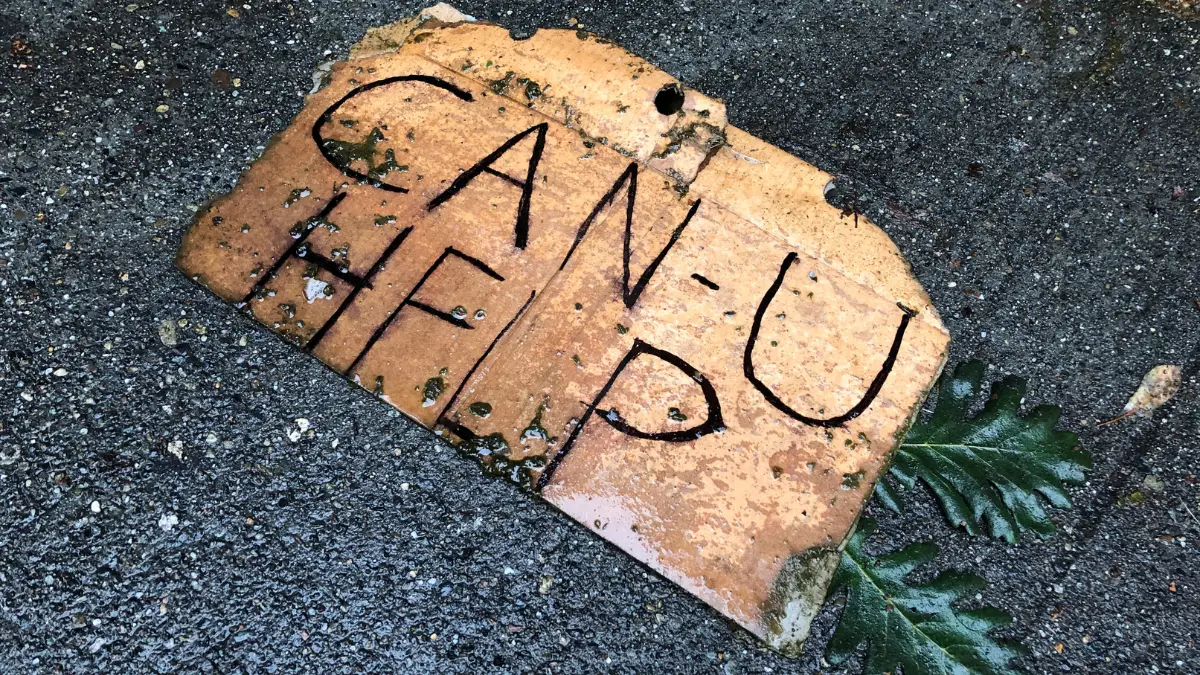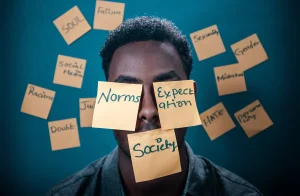In modern cities, there is a group of people that largely gets ignored. They are not invisible but people overlook them. This group is the homeless. Georg Simmel’s concept of the blasé attitude helps to explain the feelings, beliefs, and reactions people have towards this group of people. Simmel explains that people become indifferent to the things around them as life gets more concentrated in cities. I argue that this is what is happening in the Untied States today.
Georg Simmel and the Blasé Attitude
Georg Simmel was an early sociologist who was a prolific writer and foundational to sociology. His work, The Metropolis and Mental Life (1903), focused on problems that arise from living within the city. He argues that there is an overwhelming amount of external and internal stimuli present in cities. As a result of living in cities people are constantly surrounded by large crowds and differing activities. The enormity of this has the potential to drown people in the overwhelming stimulation of city life.
As a result of the enormity of life in the metropolis, people work to protect themselves through rational non-emotional responses. Simmel argues this creates a “reaction of the metropolitan person to those events is moved to a sphere of mental activity which is least sensitive and which is furthest removed from the depths of the personality.” In other words, it removes emotion from our interactions and thought processes. Thus leaving less room for concern for others.
Along with rational responses comes the development of a blasé attitude to deal with the increased pressure of their environment. Simmel writes that the essence of this attitude is, “an indifference toward the distinctions between things.” This does not mean that the stimuli become invisible, instead everything is flattened out. What used to be overwhelming about city life gets normalized and nothing stands out. It creates a state of indifference to what is happening around us. This allows us to disregard the people we see around us that are in need of help.
Read: Mass Shootings and our Simmelian Blasé Attitudes
Homelessness in the United States
Homelessness is not a new phenomenon in this country. The first documented cases of homelessness in the United States dates back to 1640. During industrialization people began to move into cities for work creating a boom in homelessness. During this time the term homelessness was used to describe people traveling the country in search of work. The term was connected to a panic over perceived lack of morals that threatened the social norms of home life.
Currently there is a rising rate of homelessness that began in 2017 equaling a 6 percent increase. The rising homeless population faces increased efforts by cities to clear their encampments. In 2022, Phoenix Swept more than 3,000 camps and Las Vegas swept around 2,500 camps. In Portland, the city clears around 19 encampments on average per day. The government commonly responds to homelessness with violence to push them out of sight.
The government’s response is inhumane but it is allowed to happen because of people’s response to the homeless. Many people struggle to even look at and acknowledge that they see homeless people. People assume that the homeless have made bad choices that lead them to being homeless. This assumption makes it so people do not feel a need to pay attention to the homeless. The problem is that these assumptions are based on false ideas.
There are several reasons that someone could become homeless such as losing a job, physical or mental illness, and rent increases. The problem exists because of the lack of a safety net. Homelessness is not about someone being lazy or not wanting to get a job. The fact people believe these things is emblematic of a blasé attitude.
Blasé Attitude Toward Homelessness
When people think of homelessness they conjure images of drug use, alcoholism, and danger. These are extreme stereotypes that limit the humanity of homeless people. The stereotypes paint a false image of homeless people. Seeing people living on the street can bring up overwhelming feelings. We can’t live with these feelings all the time. This leads us to indifference. We either ignore them or say it’s their fault for choosing to drink, use drugs, or they are just lazy. These false images of homeless people make people feel they don’t need to care.
Thinking rationally helps people ignore the issue because, “it’s someone else’s problem.”
In addition, people think about homelessness rationally rather than emotionally. Thinking rationally helps people ignore the issue because, “it’s someone else’s problem.” People think there are charities or other institutions that should deal with it. But for many homeless people, the experience going through these institutions is not worth it for a vast number of reasons. These services are based more around emergency services rather than helping people escape homelessness.
Because of these institutions and rationalizations giving us a false image of reality we do not feel mad about the city’s solution of forcing the homeless out of their shelter. The rational thought process that develops makes people think that homeless people aren’t taking the “correct” steps to fix their problem. This then justifies the destruction of their shelters in people’s minds.
The blasé attitude allows a false belief that being homeless is the individual’s fault. Placing the blame on something simple like a drug problem allows for the dismissal of social forces causing the problem. Yet we still treat it as a moral failure by the individual and punish them. Blasé attitude and rational thinking distorts the reality of homelessness.
Conclusion
Every person has a degree of a blasé attitude. We become accustomed to our surroundings and rationalize why certain problems are not our concern. For the homeless populations this means they get ignored and don’t receive meaningful help. Knowing this we can be more humane in our interactions with the unhoused. The National Alliance to End Homelessness, offers resources, information, and strategies to work towards ending homelessness. There are things we can all do to bring the unhoused into the community.







